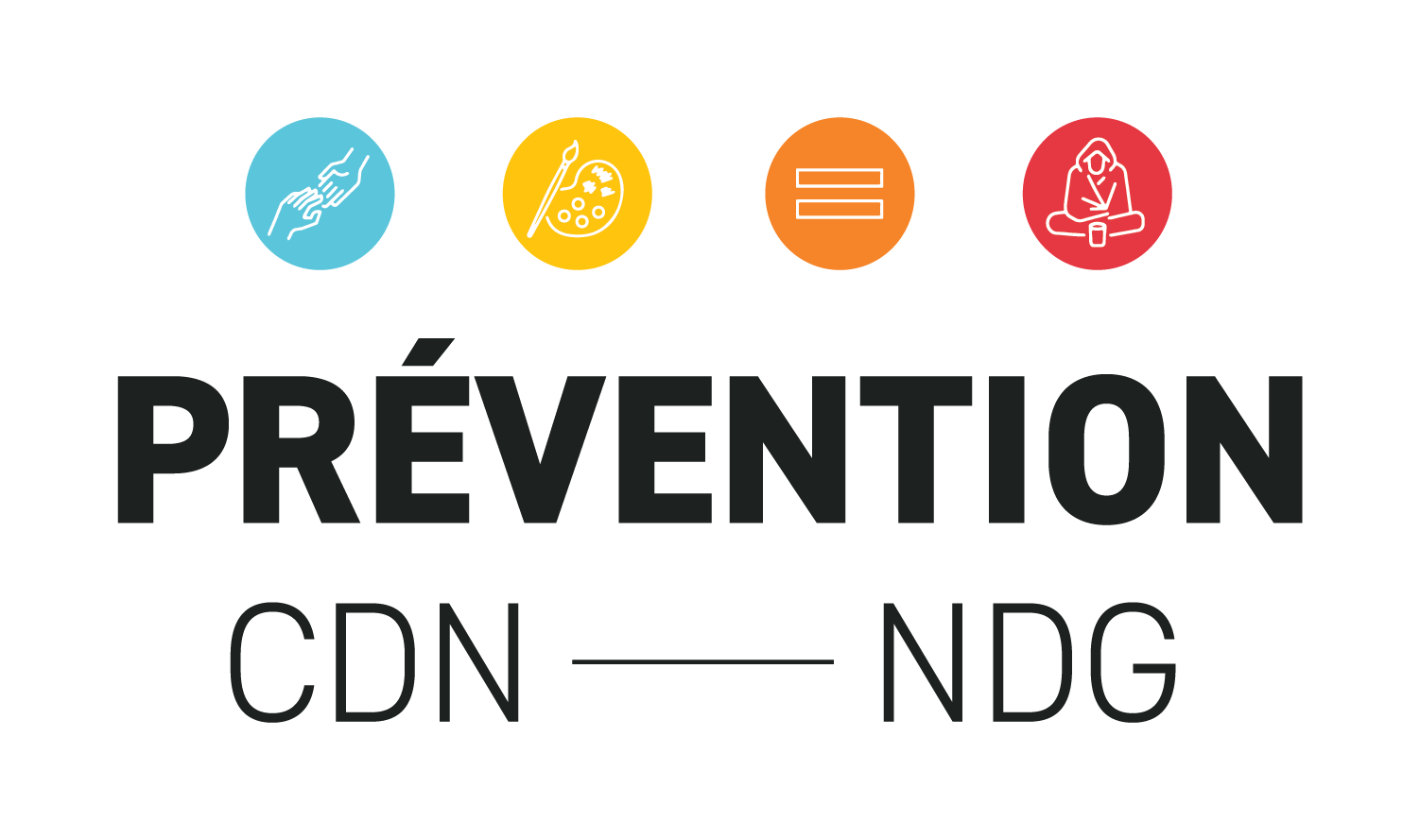history
A story during the 1980s
After a significant increase in residential burglaries across Montreal. The City, in partnership with the Police then called SPCUM, created a project called “Operation Tandem”, which would be carried out in different regions of the city and managed by local organizations. In Notre Dame de Grâce (NDG), representatives from various organizations came together and founded Prévention NDG with the goal of fostering a safer neighbourhood. Knowing that preventing crime was about locking doors and windows, but more importantly, it was about bringing citizens together to discuss neighbourhood problems. Citizens have an active role in finding local solutions.
This same exercise was also replicated in Côte-des-Neiges. The three groups in NDG were the Benny Farm Tenants Association, the NDG Black Community Association and the Walkley United Families Association. The CDN groups were the CDN Youth House, the CDN Black Community Association and the Vietnamese Association. In 1996, the Tandem CDN and NDG offices merged and expanded to cover safety issues for children and youth, women and seniors. The project was considered a success.
Working hand in hand in the community with citizens, Prevention members were proud to develop strong relationships with partners and the city. We played a lobbying role for projects that met a need in our neighborhoods. We often brought the problems we had observed to the attention of decision-makers. We also joined many citizen committees on various challenges.
Over the years, Prévention CDN-NDG has developed a solid reputation for top-notch programming with a solid team and credible financial management. In 2002, we were approached by the borough to see if we were interested in taking over the management of the Éco Quartier (a municipal program dedicated to environmental awareness) in the Loyola neighbourhood. The two projects, although on different topics, shared similar methods of reaching citizens, through door-to-door canvassing, kiosks and special events. We agreed to manage the project in the short term.
At the beginning of the decade, Prévention CDN-NDG experienced a period of growth. In addition to Tandem and Éco-Quartier, we developed youth-related projects that included the annual Hip Hop you Don't Stop festival, the co-creation of large-scale murals and other art-related youth activities, a team of street and outreach workers, which covered various areas of the borough. We worked in partnership with other organizations such as youth tables, and sometimes we worked alone.
Other projects we managed included an illegal tagging project, an outreach program for seniors in difficulty, participation on the interim board of the Walkley Centre, a major federal project on consent culture, a leadership project for girls aged 12 to 17, and a project that addressed gender and equality issues.
A change in leadership occurred in early 2020. Unfortunately, all projects and programs came to an abrupt halt when the world was faced with a global pandemic. Much of our work had to be reassessed and refocused over the next two years. In addition, a large number of staff were replaced. Donors also evaluated their spending and reviewed the projects they fund. The Tandem Program ceased operations in early 2024, after forty years of existence. In addition, the two Eco-Quartier offices are now managed by neighborhood environmental specialists, SOCENV.
Currently, Prévention CDN-NDG manages the following four categories of projects:
Community Approach: After a significant increase in residential burglaries across Montreal. The City, in partnership with the Police then called SPCUM, created a project called “Operation Tandem”, which would be carried out in different regions of the city and managed by local organizations. In Notre Dame de Grâce (NDG), representatives from various organizations came together and founded Prévention NDG with the goal of fostering a safer neighbourhood. Knowing that preventing crime was about locking doors and windows, but more importantly, it was about bringing citizens together to discuss neighbourhood problems. Citizens have an active role in finding local solutions.
This same exercise was also replicated in Côte-des-Neiges. The three groups in NDG were the Benny Farm Tenants Association, the NDG Black Community Association and the Walkley United Families Association. The CDN groups were the CDN Youth House, the CDN Black Community Association and the Vietnamese Association. In 1996, the Tandem CDN and NDG offices merged and expanded to cover safety issues for children and youth, women and seniors. The project was considered a success.
Working hand in hand in the community with citizens, Prevention members were proud to develop strong relationships with partners and the city. We played a lobbying role for projects that met a need in our neighborhoods. We often brought the problems we had observed to the attention of decision-makers. We also joined many citizen committees on various challenges.
Over the years, Prévention CDN-NDG has developed a solid reputation for top-notch programming with a solid team and credible financial management. In 2002, we were approached by the borough to see if we were interested in taking over the management of the Éco Quartier (a municipal program dedicated to environmental awareness) in the Loyola neighbourhood. The two projects, although on different topics, shared similar methods of reaching citizens, through door-to-door canvassing, kiosks and special events. We agreed to manage the project in the short term.
At the beginning of the decade, Prévention CDN-NDG experienced a period of growth. In addition to Tandem and Éco-Quartier, we developed youth-related projects that included the annual Hip Hop you Don't Stop festival, the co-creation of large-scale murals and other art-related youth activities, a team of street and outreach workers, which covered various areas of the borough. We worked in partnership with other organizations such as youth tables, and sometimes we worked alone.
Other projects we managed included an illegal tagging project, an outreach program for seniors in difficulty, participation on the interim board of the Walkley Centre, a major federal project on consent culture, a leadership project for girls aged 12 to 17, and a project that addressed gender and equality issues.
A change in leadership occurred in early 2020. Unfortunately, all projects and programs came to an abrupt halt when the world was faced with a global pandemic. Much of our work had to be reassessed and refocused over the next two years. In addition, a large number of staff were replaced. Donors also evaluated their spending and reviewed the projects they fund. The Tandem Program ceased operations in early 2024, after forty years of existence. In addition, the two Eco-Quartier offices are now managed by neighborhood environmental specialists, SOCENV.
Currently, Prévention CDN-NDG manages the following four categories of projects:
Community outreach: This includes the Prox project, funded by the borough, which involves reaching out to young people in the neighbourhood. Our work in secondary schools now focuses on the Presentation of prevention and awareness workshops on the use of psychoactive substances. (SPA). There is also a project that focuses on preventing delinquency through sports, art and culture and a project for seniors in need called Initiative de Travail de milieu près des aînés en situation de vulnerability/ (ITMAV).
Urban Art: including the Hip Hop You Don't Stop urban arts festival and various mural projects.
Gender and Equality: Including a project to prevent sexual violence and Cultivating the Culture of Consent
Directions: Residential instability is a growing problem in our neighborhoods. Add to that a housing crisis, economic crises, and mental health and addiction crises. Programs addressing social co-housing, homelessness, and a winter warming center are at the forefront of Prev’s programming these days.
This includes the Prox project, funded by the borough, which involves reaching out to young people in the neighbourhood. Our work in secondary schools now focuses on the Presentation of workshops on prevention and awareness of the use of psychoactive substances. (SPA). There is also a project that focuses on the prevention of delinquency through sports, art and culture and a project for seniors in need called Initiative de Travail de milieu près des aînés en situation de vulnerability/ (ITMAV).
Urban Art: including the Hip Hop You Don't Stop urban arts festival and various mural projects.
Gender and Equality: Including a project to prevent sexual violence and Cultivating the Culture of Consent
Directions. Residential instability is a growing problem in our neighborhoods. Add to that a housing crisis, economic crises, and mental health and addiction crises. Programs addressing social co-housing, homelessness, and a winter warming center are at the forefront of Prev’s programming these days.



